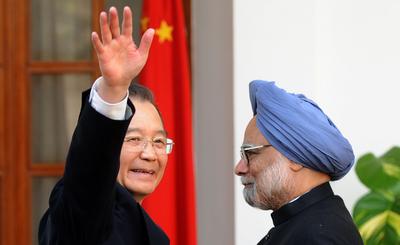The ‘naïve jingoist’ argument goes like this: we are aware of the other country’s irrationality and weaknesses while it is unaware of our rationality and strengths or has been misled by the West, which is why it is courting trouble by provoking us.
Fortunately, the hysteria exhausts itself or is abated by pragmatic interventions by politicians and government officials who argue that another war between the two countries is impossible. Pragmatists argue that both countries prioritize economic goals and know that it will be impossible to emerge as a clear winner from the next war. Consider, for instance, Subramanian Swamy’s argument. Swamy, a former union minister, has engaged with the Chinese leadership, including the late Deng Xiaoping, in various capacities. He tried to deflate the overblown concerns of an imminent Chinese attack by arguing, among other things, that the Chinese leadership is ‘rational’ and that it knows that ‘India nationally consolidates when attacked from abroad’, ‘with Tibet and Sinkiang simmering, attacking India is not a one-way street’, and ‘the terrain on our side of the border provides a much shorter and friendlier supply chain.’
Swamy’s argument is representative of a class of pragmatic arguments: governments in both countries are rational; each country has its own strengths and weaknesses; disparity between their strengths is limited because the weaknesses can be easily exploited; and both sides know that the other is well-informed of these facts. The contrast between the pragmatic and naïve arguments could not be greater, even though both presume that India and China are natural competitors and war is a sub-optimal way of resolving conflict.
While the flaws of the naïve argument are obvious, the weaknesses of the pragmatic argument will bear elaboration.
The facts presumed by Swamy, and his Chinese counterparts, might not be common knowledge. It is possible that the intensity of domestic problems of a country and the level of its military preparedness is information privately held only by its policymakers. As we know, private information can precipitate war. Unfortunately, six decades of mistrust limits the ability of the two governments to credibly exchange private information. Add to this the growing uncertainty in the international system, which can itself trigger mutually aggressive posturing by emerging powers trying to test waters.
The problem due to information deficit that characterises Sino-Indian relations is further compounded by domestic politics and empathy deficit. Ideally, each government chooses actions that further its country’s overall objectives in light of all available information. But in practice governments have to also be mindful towards balancing numerous domestic interests. It is possible that once in a while a lobby whose interests are served by escalation of cross-border conflict has a decisive influence on policy. The self-defeating aggressiveness of China in the Senkaku incident is a case in point. Also, the Centre for Strategic and International Studies’ Bonnie Glaser argues that ‘years of unrelenting propaganda about victimisation at the hands of foreigners and the need to protect China’s dignity have produced an angry population that is prone to blaming others and lacking in empathy.’ To make things worse, the Chinese government has internalised its own propaganda. Swamy draws attention to a related problem in India.
The outcomes of contested domestic decision-making under a blanket of inadequate information and an empathy deficit would be unthinkable within the pragmatic argument. It is possible that in one of these countries, a faction under pressure due to domestic problems will try to deflect attention to the foreign front and will then be unable to dismount the tiger because of competitive intra-country and cross-border nationalism.
So, contrary to the pragmatic argument, there is no guarantee that war will not occur.
Fortunately, policymakers in both countries are aware of this possibility and are in agreement over the clear gains from cooperation. Unfortunately, they are unable to make credible commitments to uphold mutually beneficial agreements due to decades of mistrust, among both the people and the leaders. The best way to avoid a war that no one wants is to immediately start strengthening people-to-people and inter-governmental contacts. This will provide multiple channels of communication that will allow each side to listen to both hawks and doves from the other side by ensuring that no faction can single-handedly block trans-Himalayan communication for immediate gains. But the question remains: who is going to make the first step?
Vikas Kumar is an independent researcher based in Bangalore.


Generally developed nations, try to create such hype. But India and China should not forget, that the developed nations have their own vested interests.
It’s high time, India and China should sit together and discuss their development of a mature relationship.
@Sunil
Much agree with you. Maybe there is a 60 years confidence deficit between India and China but before that India and China had both endured Western humiliation for about a century and a half – surely Indian hawks and Chinese hawks ain’t that brainless to wish to prolong that humiliation? So next time a hawk from either side creeps up – remind him or her of the past humiliation. It is safe to tell the entire India and China that while they are not the best of friends yet, they both do face a common enemy that is a million times worse than either China or India as the enemy.
@sunil you are right…we tend to forget that behind every political move, there is some sort of interest, known and sometimes unknown to us….and yes…no one can say about wars, as we have seen in the past.